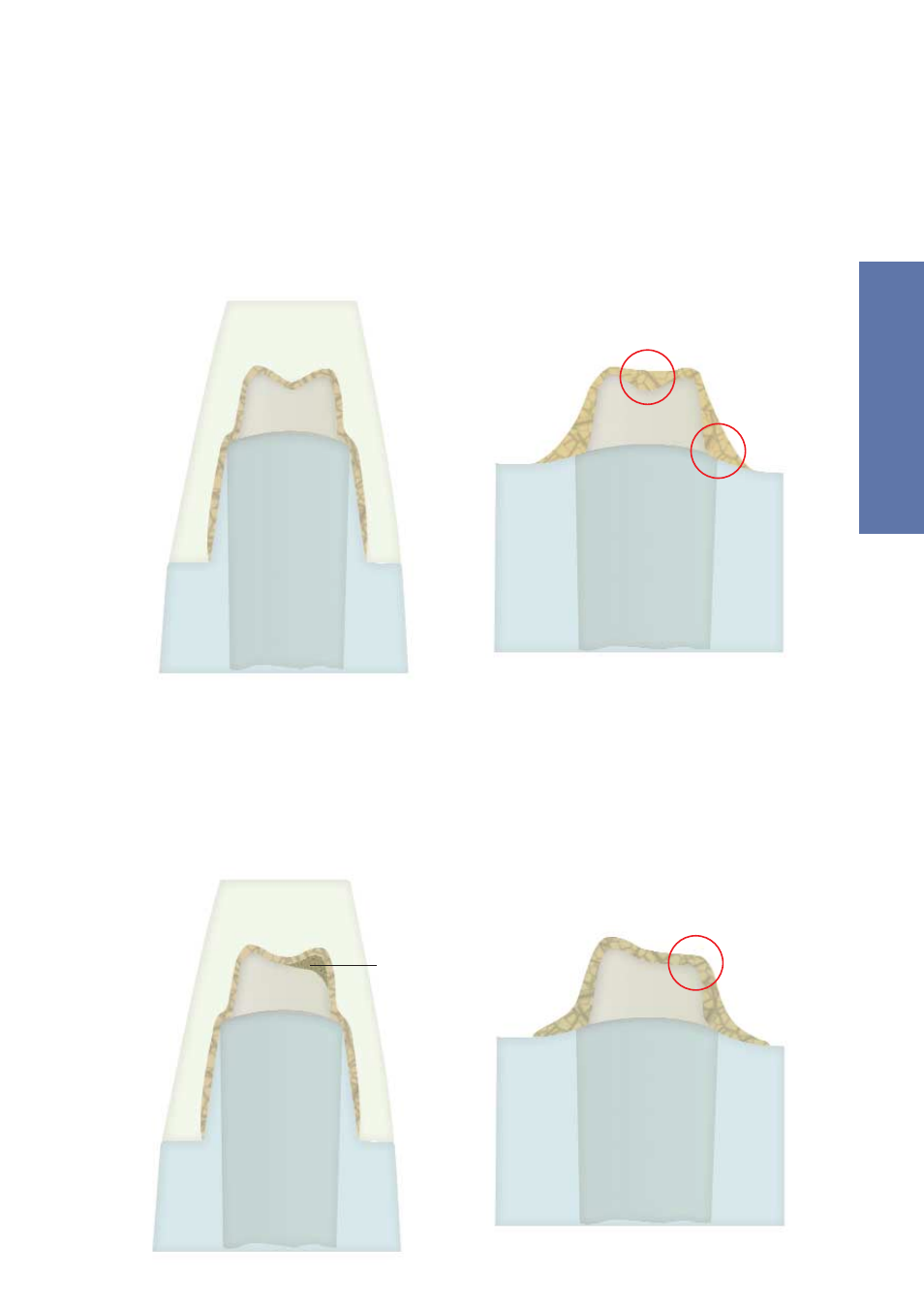Ivoclar Vivadent Vectris User Manual
Page 23

23
2.3 Posterior crowns with a deep occlusal preparation
It is imperative to use Transil if a deep occlusal preparation is present. The Transil technique ensures that the material
consistently adapts to all surfaces of the die, including the occlusion. If Transil is not employed, the occlusal surface would
become completely filled with Vectris matrix material and, consequently, would need to be reduced another time by
grinding this material off. Upon completion of the vacuum-forming process, merely trim the margins of the Transil matrix.
Do not grind the surfaces.
correct
incorrect
2.4 Posterior crowns without supporting cusps
It is imperative to use Transil if only limited remaining tooth structure is available (e.g. no cusp support). The missing tooth
structure must be compensated by the framework and not by the veneering material. Contour the missing portions (e.g.
cusp support) in wax in order to be able to apply the veneering material in a consistent layer thickness of approx. 1.5 mm
at a later stage. Next, create a Transil matrix, fill up the missing portions with Vectris Pontic and vacuum-form in the Vectris
unit. Then, apply Vectris Single and again vacuum-form in the Vectris unit to complete the framework. This method allows
for the fabrication of shape- and cusp-supporting frameworks. Furthermore, the consistent thickness of the veneering
material facilitates the creation of a harmonious shade effect and provides a maximum level of beauty and function.
correct
incorrect
WORKING
PROCEDURE
Vectris Pontic
